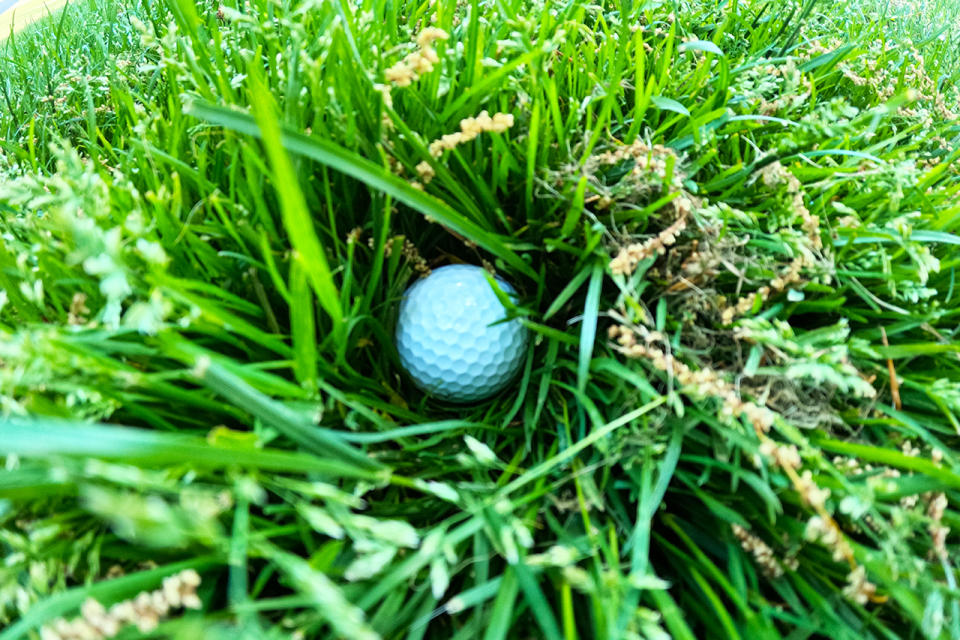
ROCHESTER, NY — The consensus among players and caddies at the 2023 PGA Championship is that it’s really a US Open. Oak Hill Country Club has undergone significant changes since Jason Dufner won the 2013 PGA Championship here, with scores of trees having been removed, but with firm fairways, thick rough and fast greens, it has the classic, old-school feel of a US Open
“I look at a golf course like this and I think it’s quite similar to what we faced at Winged Foot in 2020 in terms of a long golf course, long rough and pretty narrow fairways,” said Rory McIlroy on Monday.
A 500-yard par 4 doesn’t quicken the pulse of professional golfers anymore, but a 500-yard par 4 that is surrounded by 4 to 5 inches of snarly grass gets their attention fast.
“You get rewarded for hitting good shots, and if I miss the fairway on one of those holes that’s 500 yards, I’m going to be hacking something out of the rough and probably not going to be able to get to the green in two ,” said Scottie Scheffler.
Conditions for growing grass in Rochester this spring have been ideal, with cool days and plenty of rain. When golfers arrived at Oak Hill and started playing practice rounds, several immediately realized that handling the rough could require tweaking their equipment setup.
Several notable players now use a 7-wood regularly, including Max Homa, Dustin Johnson and Joaquín Niemann, but many players spoke with PGA Tour reps and requested them to make hybrids and high-lofted fairway woods, like 7-woods and even 9- woods, that could be used this week.
Ping’s Spencer Rothluebber worked with Callum Tarren on Monday after building the 32-year-old a G430 9-wood. “I had him hit the 9-wood and his 4-iron out of here,” Rothluebber said, pointing to a patch of rough behind the manicured turf of the driving range. “The 9-wood flew about 45 yards more and his 4-iron looked like it was really struggling.”
Tarren’s 9-wood has a 24-degree head, but using its adjustable hosel, the playing loft is closer to 22 degrees. Ping also builds its 9-woods for tour players an inch shorter than standard, typically at 40 inches in length, to make it even easier to control shots from rough and awkward lies.
Rothluebber said that 2022 US Open winner Matt Fitzpatrick has also been testing a G430 9-wood in preparation for this week’s PGA Championship.
Hybrid clubs and high-lofted fairway woods have wider soles and a lower profile than long irons, which helps them work through thick grass more easily. They also have a center of gravity location that is lower and farther back, away from the face, which encourages a higher launch angle.
JJ Van Wezenbeeck, the director of player promotions for Titleist, said his brand saw an increase in hybrids from players looking to battle the rough.
“There are some demanding shots from the fairways, and long par 3s, and earlier this week the wind was up a little bit, so the hybrid seems to be a really good choice for some of the players,” Van Wezenbeeck said. “A few players have been trying 7-woods and 9-woods, but the hybrid for many players seems to be the sweetspot for moving the ball out of the rough and still giving them some of the other shots that they are going to have this week.”
Van Wezenbeeck said that Jordan Spieth is among the players who have been testing hybrids this week at Oak Hill. In Spieth’s case, a TSR1 hybrid.
If you routinely play courses that have thick rough or struggle to hit high, soft-landing shots on long par 3s, work with a custom fitter who can watch you hit shots using a launch monitor to see if hybrids or a high-lofted fairway wood could be a good option for you. Below are several notable options worth trying.
More PGA: Expert picks, odds | Sleepers | Live updates
Callaway Paradym X
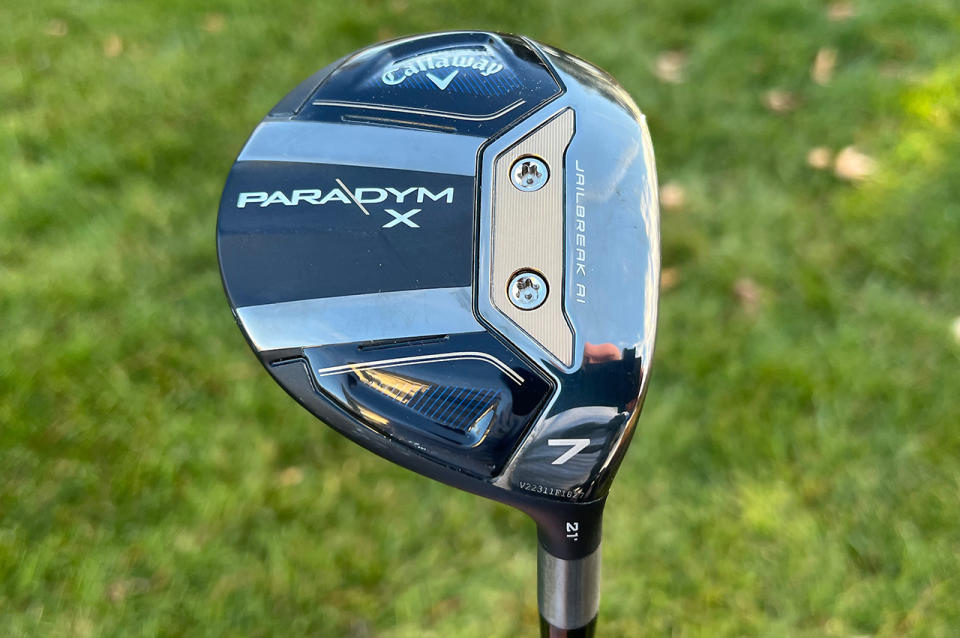
Callaway Paradym X fairway woods. (David Dusek/Golfweek)
The Paradym X is offered in several versions, including a 7-wood (21 degrees) and it features extra weight in the heel to encourage a right-to-left ball flight. The face is forged using stainless steel, but there is plenty of carbon fiber on the crown and the toe.
Cleveland Launch XL Halo Hy-wood
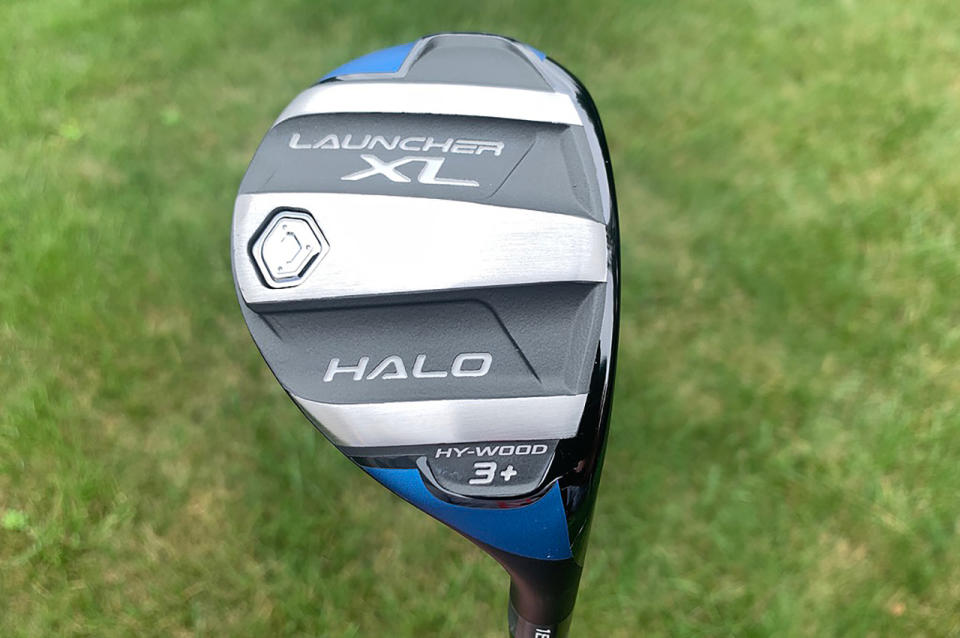
Cleveland Launcher XL Halo Hy-Wood. (David Dusek/Golfweek)
The Launcher XL Halo Hy-wood has 18 degrees of loft, like a 5-wood, but comes standard on a 41.5-inch shaft, which is about an inch shorter than a typical 5-wood and 1.5 inches longer than a 3-hybrid . It also has Rebound Frame for more ball speed, a triple-railed sole design for better turf interaction and a HiBore crown to lower the center of gravity and encourage higher-flying shots.
Cobra Aerojet Max
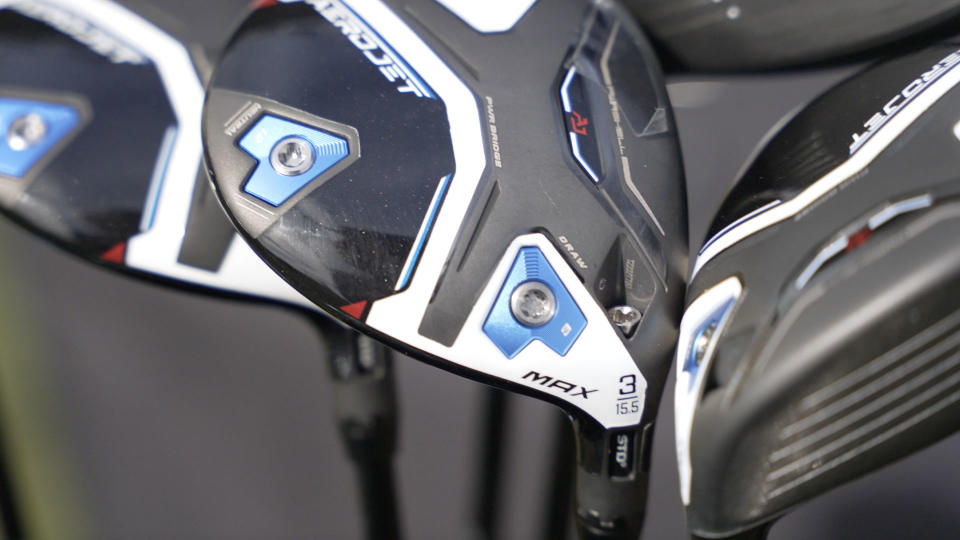
The Aerojet fairway woods have an internal weight to optimize the center of gravity location for increased ball speed, lower spin rates and more distance. The club also has a carbon fiber crown and is available as a 21.5-degree 7-wood.
Ping G430 Max
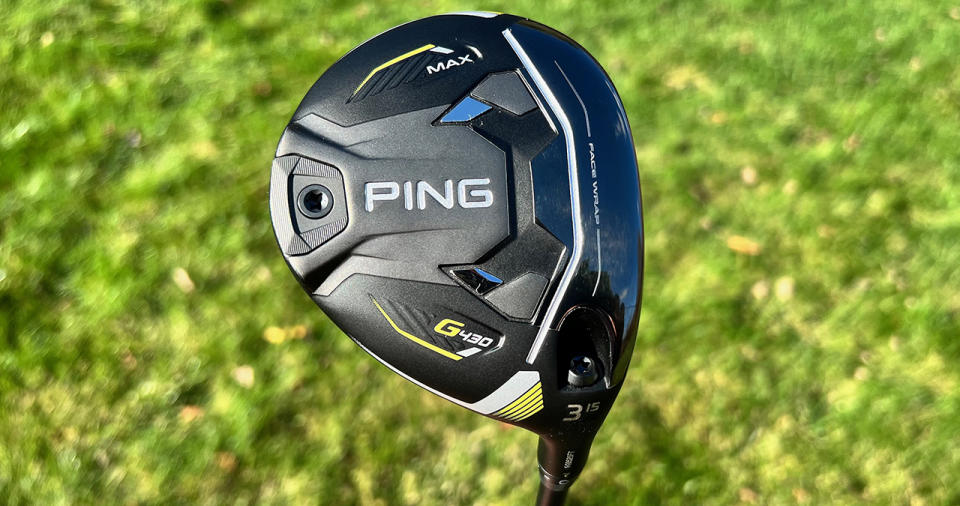
Ping G430 Max fairway woods. (David Dusek/Golfweek)
The G430 fairway woods are available as a 7-wood (21 degrees) and a 9-wood (24 degrees) and both have a carbon fiber crown, a maraging stainless steel face and an adjustable hosel.
PXG 0311 GEN6
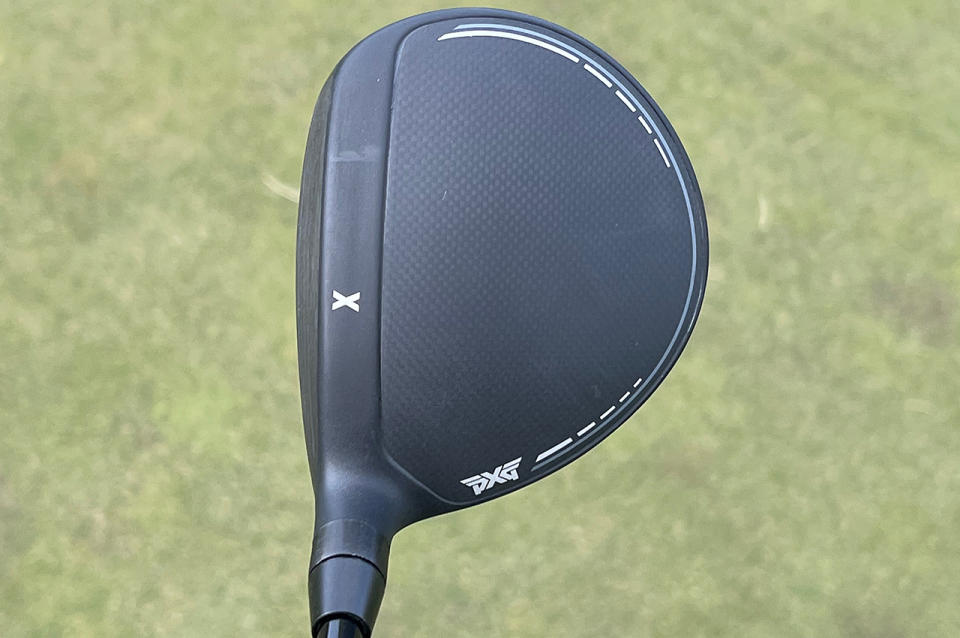
PXG 0311 XF GEN6 fairway woods. (David Dusek/Golfweek)
The 0311 XF GEN6, which is available as a 7-wood, has a light carbon fiber crown and weights in the sole to lower the center of gravity. It is designed with a lower profile and rails in the sole to improve turf interaction.
TaylorMade Stealth 2
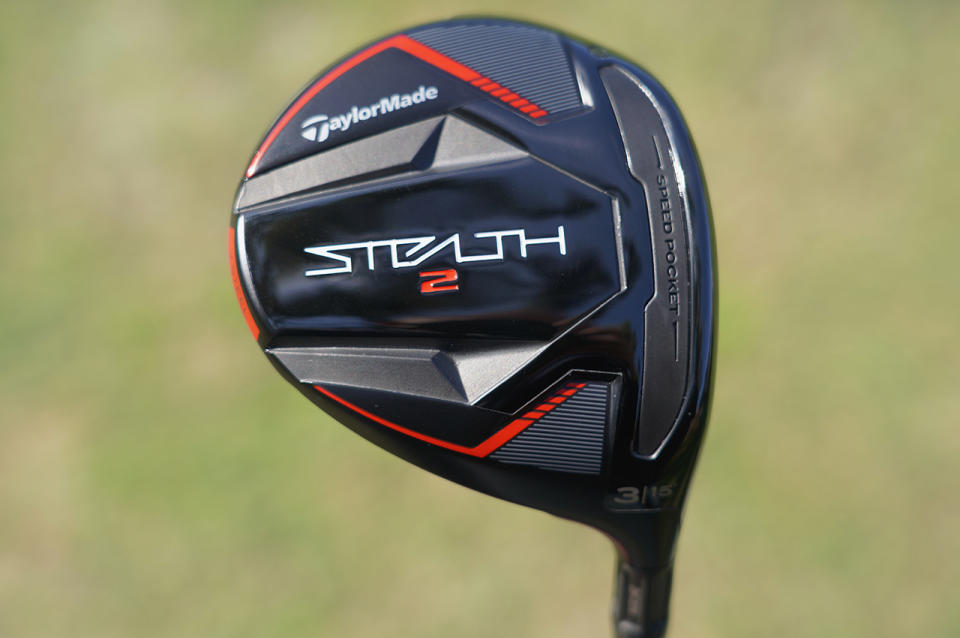
TaylorMade Stealth 2 fairway wood. (David Dusek/Golfweek)
Among the five loft offerings for the Stealth 2 are a 7-wood (21 degrees) and a 9-wood (24 degrees) and each has a carbon fiber crown, a hitting area designed with shot-straightening Twist Face and a large Speed Pocket slot in the sole to enlarge the sweet spot.
Titleist TSR1
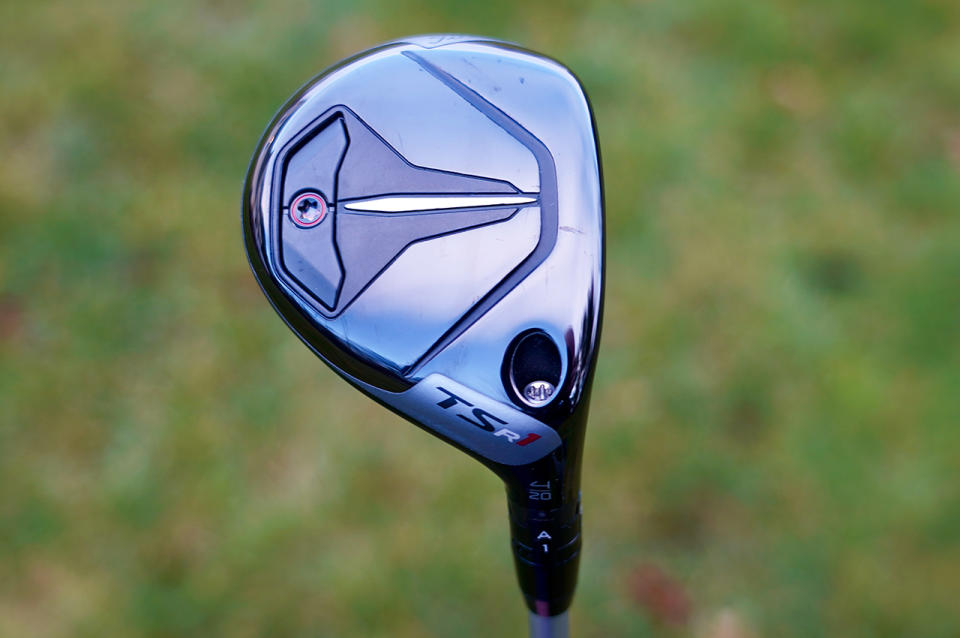
Titleist TSR1 hybrids. (David Dusek/Golfweek)
The TSR1 hybrids are available in 4H (20 degrees), 5H (23 degrees), 6H (26 degrees) and 7H (29 degrees) and all of them have a stainless steel face and adjustable hosel. The TSR1 woods are designed to
Tour Edge E 723 hybrids
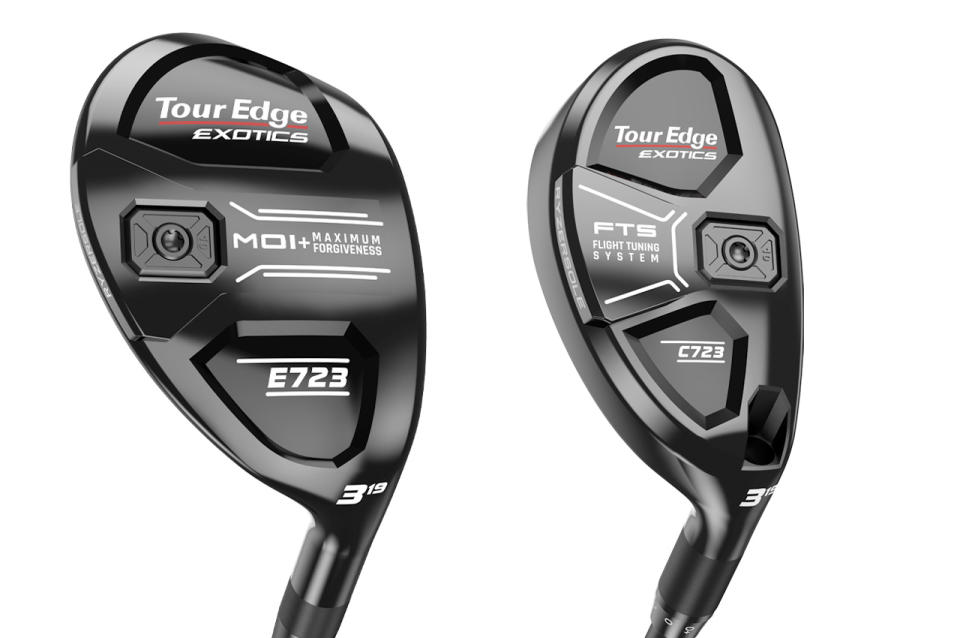
Exotics E723, Exotics C723 hybrids. (Tour Edge)
While the Exotics C723 hybrids have an adjustable hosel, the Exotics E723 hybrids, which are available as both a 4 (22 degrees) and 5 (25 degrees) have a larger head that is designed to be more forgiving. Both have carbon fiber crowns and powerful, managing steel faces.
Story originally appeared on GolfWeek